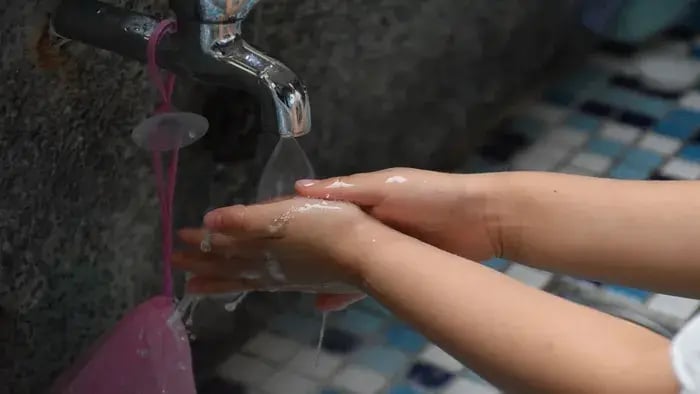- Hand Wash
- Bath Routine
- No Repeating Of Sweaty Clothes
Introduction
Proper hygiene is essential for building immunity in children. Different types of hygiene schedules and standards are essential for children to recognize as they grow up. Starting with potty training and looking after clean dishes and laundry is the time frame that children grow up to get the task done independently, ensuring proper hygiene and livelihood.
Children need to follow up on the steps of cleanliness and hygiene, learning from an early age to be in the habit. Most of the time, children are lazy about cleanliness, which includes taking baths or even brushing every day. Skipping through these routines can cause health hazards in children, compromising hygienic standards.
Parents should constantly encourage children to be hygienic and clean now and then because proper hygiene builds up immunity. Keep on reading to know more about the topic.
Understanding Hygiene

Understanding hygiene is essential for parents. Hygiene is a broad term that includes various things together. Brushing and caring for gums, cleaning after oneself through bath and bowel, maintaining proper hygiene and courtesy, and cleaning after the environment. All these aspects come under the term hygiene.
To understand it simply, everything and anything that has to do with cleanliness and maintenance can be termed under the word hygiene. Hygienic practices involve every task being done correctly and in a clean manner. It may be cooking food, eating it, or bathing.
Having a proper manner of doing something that ensures cleanliness around the space is known as hygiene. Altogether, it's simply anything that has a clean space and proper maintenance that can be termed as a hygienic thing or place.
Understanding Immunity

Immunity can be called a protection shield in children, which is gathered with nutrients and health resources in the body to fight germs and diseases. Immunity can be simply known as the ability to stay healthy even in harsh conditions, fight infections or any diseases, keeping the child healthy for a long amount of time.
Good immunity consists of strong white blood cells, which contribute to fighting infections and foreign bodies in the child. Good immunity progresses growth and development in children without any adversity, making the child strong physically and mentally. Better immunity also brings good concentration and focus to children, making them more efficient.
What Is The Connection Of Immunity And Hygiene?

Here are a few pointers to understand the connection between hygiene and immunity:
- Proper hygiene ensures that the environment is stable without any dirty infections or diseases lying around.
- Good immunity makes sure that even if such diseases are far away, they cannot enter the body; otherwise, building a stronger shield in a clean environment.
- Good hygiene also makes sure that the excretion of the body, such as sweat, bowel movements, and urination, is completely clean throughout the body, making the child feel refreshed and light.
- Good immunity facilitates proper excretion and kidney function without any adversity or infections, making bodily excretion more smelly or painful.
How To Maintain Overall Hygiene? Tips For Kids
Here are a few pointers to know about to maintain overall hygiene:
Hand Wash
Children need to wash their hands regularly. Washing hands too much with soap can damage the hands but following a specific set of rules for when to wash hands and when to not can be golden for kids in maintaining hygiene.
- The first rule is that whenever a child eats something, they should wash their hands before and after it.
- Second, the rule is that whenever they go to the toilet, they should wash their hands after business.
- Third, whenever the children touch dust or dirt on their hands, they should wash them instantly after the job is done.
- If the child feels sticky around the hand, they should wash them immediately, too.
Washing hands helps with removing the accumulated dirt and germs, even under nails. This action helps the child build immunity without consuming or getting affected by any infection or disease.
Bath Routine
Children need to take a bath for at least 15 minutes during the day. Children should follow these rules:
- Children should always get their bodies wet first.
- Children should start with intimate areas and move on to the whole body with soap.
- Next, they should properly rub their hands, back, belly, neck and face with soap to make sure all the dirt is gone.
- They should properly wash their body while bathing so that no soap remains.
Bathing is a foolproof plan similar to washing hands by letting go of every infection and dirt in the body that can cause health hazards and disturb immunity.
No Repeating Of Sweaty Clothes
Another essential rule to maintain hygiene is that children should never wear the same clothes every day; as clothes accumulate sweat and become smelly and used. Encouraging children to change clothes frequently is a good habit.
Conclusion
Now that most parents and children know about the importance of hygiene in building immunity, they should make sure that they follow proper hygiene routines and day-to-day tasks for better immunity and growth.
Smriti is a content writer who creates clear, practical, and informative content backed by science and relevant data. With a strong understanding of structured writing, she breaks down complex topics into simple, actionable insights. Her work is focused on helping readers prepare, learn, and grow with confidence and clarity.
The views expressed are that of the expert alone.
References
https://www.sciencedaily.com/releases/2021/07/210705094709.htm
The information provided in this content is for informational purposes only and should not be considered a substitute for professional medical advice, diagnosis, or treatment. Always seek the advice of your physician or another qualified healthcare provider before making any significant changes to your diet, exercise, or medication routines.
















